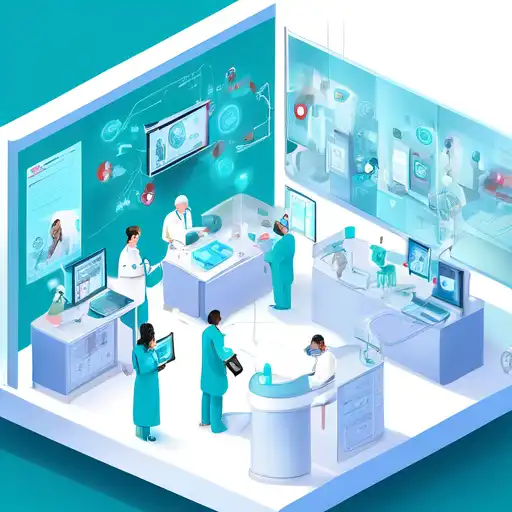Introduction to IoT in Healthcare
The Internet of Things (IoT) is revolutionizing various sectors, and healthcare is no exception. By integrating IoT devices into medical services, healthcare providers can offer more personalized, efficient, and accessible care to patients worldwide. This article explores the transformative role of IoT in healthcare, highlighting its benefits, challenges, and future prospects.
Key Benefits of IoT in Healthcare
IoT technology brings numerous advantages to the healthcare industry, including:
- Remote Patient Monitoring: Wearable devices and sensors enable continuous monitoring of patients' vital signs, reducing the need for hospital visits.
- Improved Patient Care: Real-time data collection and analysis allow for timely interventions and personalized treatment plans.
- Enhanced Operational Efficiency: IoT devices streamline hospital operations, from inventory management to patient flow optimization.
- Cost Reduction: By minimizing unnecessary hospitalizations and automating routine tasks, IoT helps in cutting healthcare costs significantly.
Challenges and Considerations
Despite its potential, the adoption of IoT in healthcare faces several challenges:
- Data Security and Privacy: The vast amount of sensitive health data generated by IoT devices raises concerns about privacy and security breaches.
- Integration with Existing Systems: Ensuring compatibility between IoT devices and legacy healthcare systems can be complex and costly.
- Regulatory Compliance: Healthcare providers must navigate stringent regulations regarding the use of IoT technologies in patient care.
Future of IoT in Healthcare
The future of IoT in healthcare looks promising, with advancements in AI and machine learning further enhancing the capabilities of IoT devices. Innovations such as smart implants and AI-driven diagnostics are set to redefine patient care, making it more proactive and predictive. As the technology matures, we can expect wider adoption across the healthcare spectrum, from rural clinics to urban hospitals.
Conclusion
IoT is undeniably transforming healthcare services, offering unprecedented opportunities to improve patient outcomes and operational efficiency. However, realizing its full potential requires addressing the associated challenges, particularly in terms of data security and system integration. With continued innovation and collaboration, IoT can pave the way for a more connected and efficient healthcare ecosystem.
For more insights into how technology is shaping the future of healthcare, explore our articles on digital transformation in healthcare and the role of AI in medicine.
